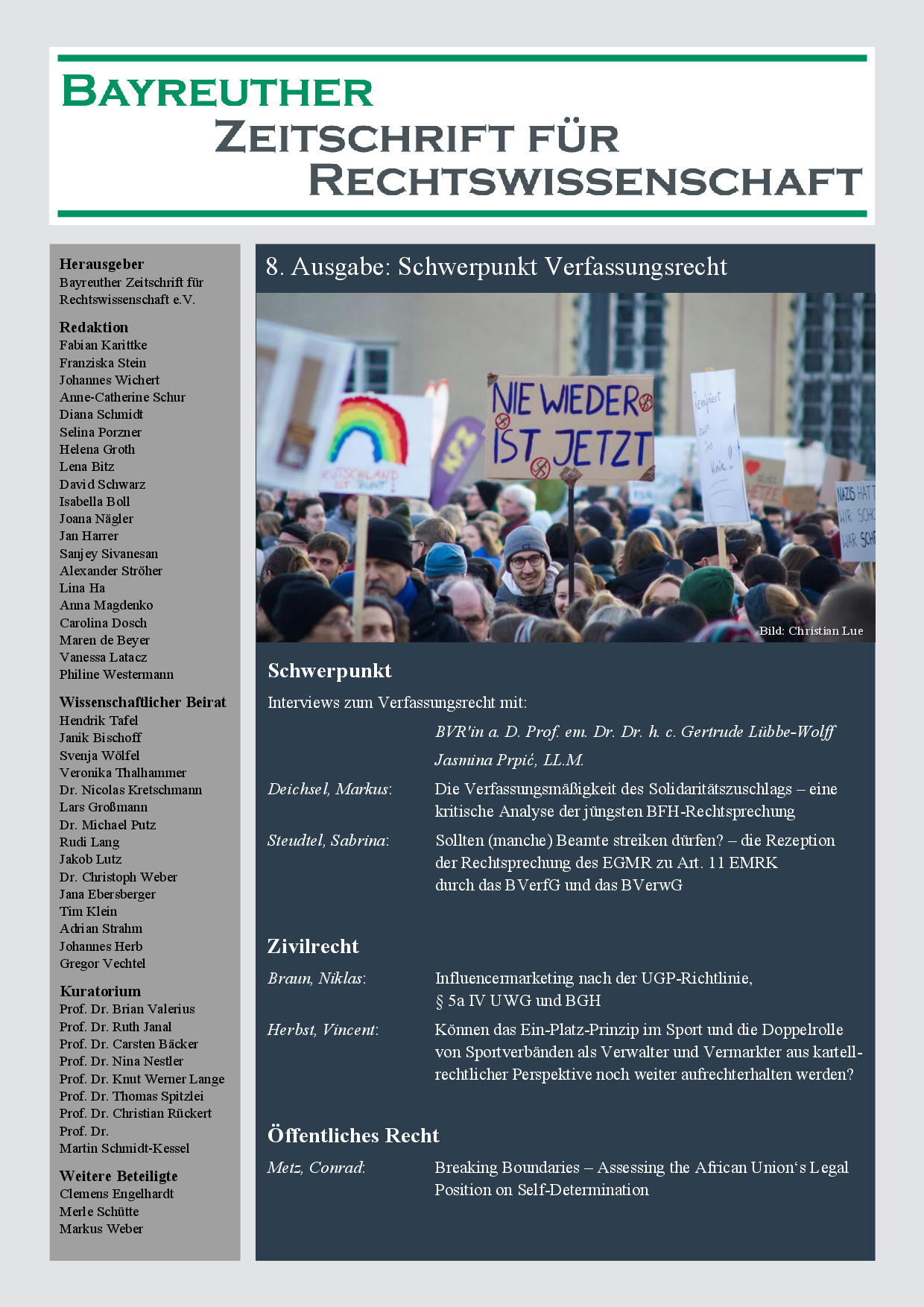Breaking Boundaries – Assessing the African Union's Legal Position on Self-Determination
Hauptsächlicher Artikelinhalt
Abstract
In this study, the effectiveness of the African Union (AU) is debated, and an evaluation of the AU's legal stance in secessionist and self-determination movements in post-colonial Africa is presented, by means of which its effectiveness in promoting peace, stability, and development on the continent is determined.
During colonial times, the sanctity of colonial boundaries was mainly maintained by the colonial powers. However, in the process of decolonization, African nationalists demanded and received self-determination based on these colonial entities. Thus, the new states that emerged in Africa were political structures inherited from colonialism, with all divisions based on the exploitation of profit and resources. Still however, colonial borders crossed ethnic groups, causing an ethnic “split-up” on the African continent as can be observed in the Ewes in Ghana and Togo or the Maasai in Kenya and Tanzania.
This research examines the difference of the self-decision movements in Namibia, Western Sahara, Biafra, and Somaliland and gives an overview of the stances the Organization of African Unity and the African Union had in each instance.
Artikel-Details
Rubrik

Dieses Werk steht unter der Lizenz Creative Commons Namensnennung - Nicht-kommerziell 4.0 International.

